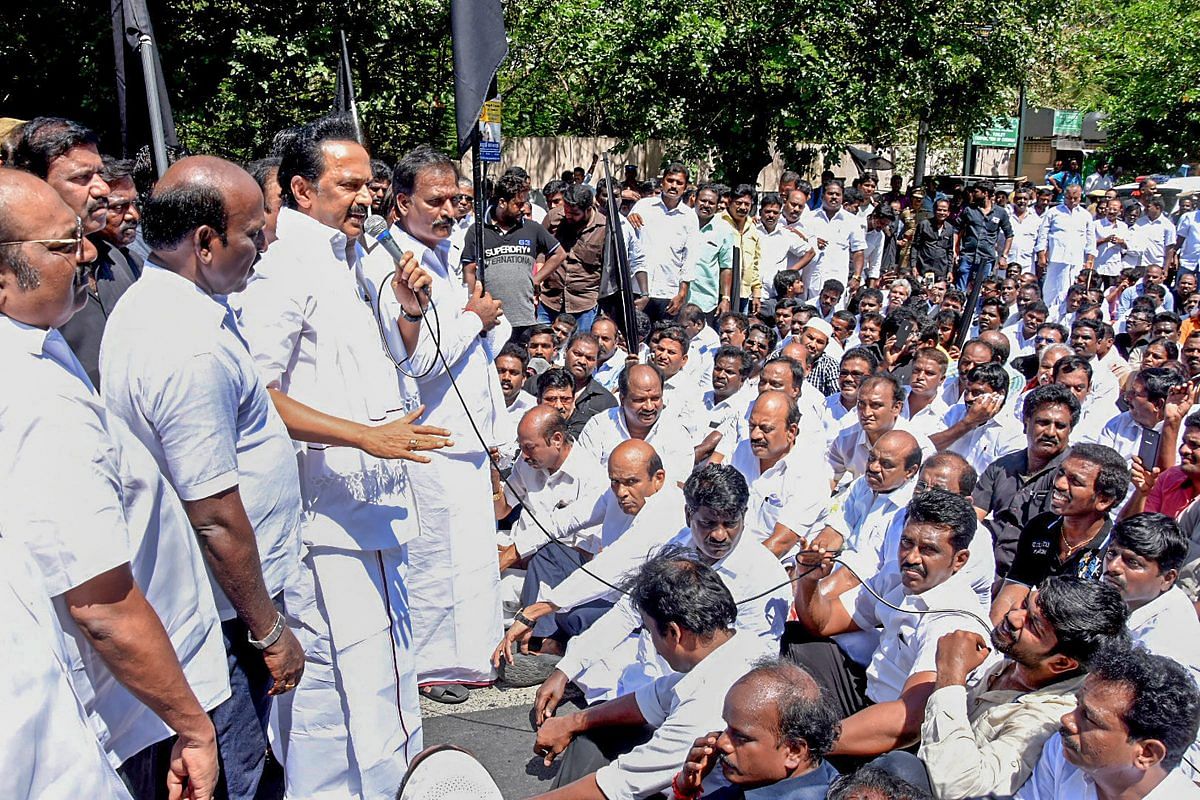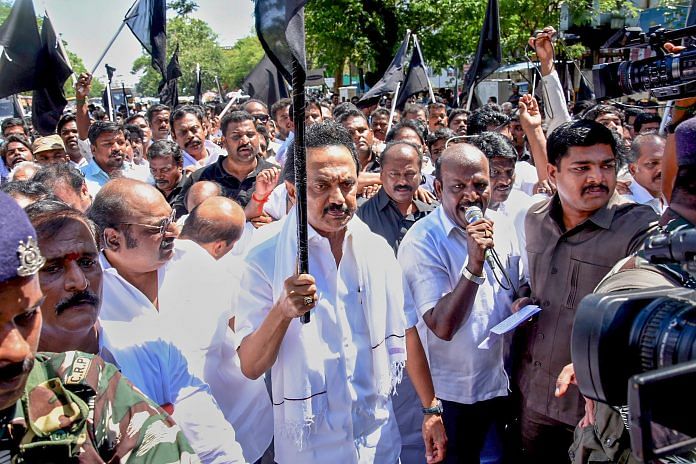The Tamil Nadu governor’s review meetings with district authorities overstep constitutional boundaries.
The role of the governor has been the subject matter of numerous constitutional cases before the Supreme Court. But, it is the Constituent Assembly debates that we look at in order to understand the scope of all high constitutional offices, including the governor’s.
“If the Constitution remains in principle the same as we intend that it should be, that the governor should be a purely constitutional governor, with no power of interference in the administration of the province…,” said Babasaheb Ambedkar, chairman of the Drafting Committee.

After a series of peaceful protests and black-flag agitations led by the Dravida Munnetra Kazhagam (DMK), the office of governor of Tamil Nadu issued a press release on 24 June stating that the governor is free to visit all parts of the state and during such visits, district officials “make presentations about the prevailing conditions” and “take delight in informing the governor about their schemes, programmes and achievements”.
While it is debatable whether district officials take “delight” in making presentations, the words of Ambedkar, the father of the Indian Constitution, are unexceptional in their tone and tenor to exclude the governor from any role in the administration of the state.
The Supreme Court, while dealing with a case on the termination of service of a subordinate judge in Shamsher Singh vs Punjab, has said that the governor must act on the aid and advice of the council of ministers, and is not to “exercise the executive functions personally”. The governor of Tamil Nadu has acted directly in contravention to these constitutional principles, and not adhered to the founding doctrine in our democratic set-up.
The press release also states that the “use of the word ‘review’ by the leader of the opposition is an attempt to mislead the people”. However, a Right to Information filed with the collectorate in Coimbatore has provided information contradicting this position. It says that the governor attended “review meetings with district authorities” on 15 November 2017 during his visit to Coimbatore. Therefore, the explanation given by the office of the governor seems to be the one misleading the people.
Veiled threats
Notwithstanding the debate on whether this is sufficient grounds for removing the governor, the political opposition to the governor’s activities has never been greater. Aggrieved by the escalating opposition to the governor’s visits, the press release quotes Section 124 of the Indian Penal Code, which deals with criminal assault on governor with intent to restrain him from exercising his powers. The press release informs us that punishment of seven years imprisonment is provided under Section 124 of the IPC.
Such veiled threats from the Raj Bhavan must be seen as counter-productive to the cause of the governor, and as further proof of what is being alleged: that the governor is meddling with executive functioning. Law and order is strictly under the purview of the home department, which comes under the chief minister. The governor’s role is only triggered when there is a breakdown of the constitutional machinery and Article 356 comes into effect. It is unclear if there was a need for the governor’s office to issue a press release discussing law and order.
Another peculiar portion of the press release states that “those who do not understand the correct legal position or do not wish to abide by the law should desist from making comments or pursuing actions which are violative of the law”.
The correct constitutional position is that there exists freedom of speech and expression, as well as freedom of association. The law of the land provides certain fundamental rights, which cannot be abrogated by any person, howsoever high he may be. As the press release says, “correct legal position” is not subject to the whims and fancies of any one person but that which emanates from the rule of law.
Naturally, issuing such politically charged press statement creates doubts of a parallel power centre operating from Raj Bhavan in Chennai, and whether we have regressed to a dyarchical system of governance, one which was given up when the Government of India Act 1935 came into force. If the governor seeks to “delight” the people of this state, he must ensure that the Raj Bhavan does not become a den of political activity.
The author is an advocate and spokesperson for the DMK.




The Dravidian parties one after the other during the last five decades plus have made the government gajana empty with freebies and at the same time amazing wealth through corruption in every walk of life of the common man. They don’t know what is development Anna hence when a constitutional authority goes around to monitor, they are scared and it will be seeing to tag him as bhp man. TN should be happy that at last we have one active governor like we had an Kalam as president, just find what he is supposed to do as governor.